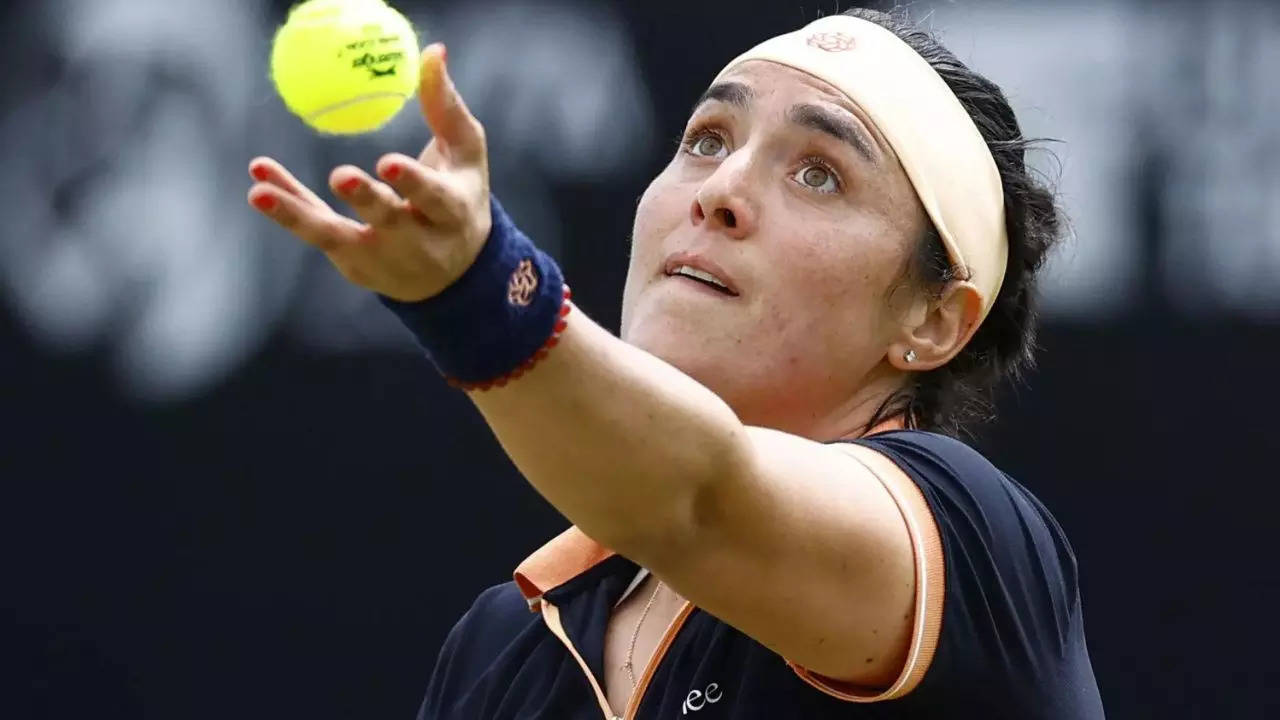Tennis
‘I must listen to my body’: Tennis star Ons Jabeur withdraws from 2024 Paris Olympics – Times of India

NEW DELHI: Tunisian tennis star Ons Jabeur has announced her withdrawal from the upcoming 2024 Paris Olympics. The decision, driven by concerns over potential injury risks, highlights the demanding physical challenges faced by professional athletes navigating a packed tournament calendar across diverse playing surfaces.
Jabeur’s withdrawal centres on the Olympic tournament’s utilization of clay courts, the same surface used for the French Open.
Having concluded her clay court season earlier this month with a quarter-final appearance at the French Open, the world no. 10 is currently transitioning to grass court competitions, followed by the hard courts of the US Open shortly after the Olympics.
This rapid succession of surface transitions poses a significant challenge for athletes. Adapting to the unique characteristics of each surface – clay’s slow bounce and high friction, grass’s low bounce and speed, and hard court’s medium bounce and pace – requires significant physical adjustments. These adjustments impact movement patterns, footwork, and the strain placed on various muscle groups, particularly the knees.
Jabeur, in consultation with her medical team, determined that subjecting her body to such a rapid transition, particularly after an already demanding clay court season, would significantly increase the risk of injury to her knee.
“After consulting with my medical team regarding attending the Olympics in Paris we have decided that the quick change of surface and the body’s adaptation required would put my knee at risk and jeopardise the rest of my season,” Jabeur wrote on social media.
“I have always loved representing my country in any competition. However, I must listen to my body,” she added.
While representing Tunisia in the Olympics holds immense personal significance for Jabeur, as evidenced by her participation in three previous Games, prioritizing her physical well-being is paramount to ensure continued success throughout the season and beyond. Jabeur will be seen plying her trade in Wimbledon starting on July 1, 2024.
Jabeur’s withdrawal centres on the Olympic tournament’s utilization of clay courts, the same surface used for the French Open.
Having concluded her clay court season earlier this month with a quarter-final appearance at the French Open, the world no. 10 is currently transitioning to grass court competitions, followed by the hard courts of the US Open shortly after the Olympics.
This rapid succession of surface transitions poses a significant challenge for athletes. Adapting to the unique characteristics of each surface – clay’s slow bounce and high friction, grass’s low bounce and speed, and hard court’s medium bounce and pace – requires significant physical adjustments. These adjustments impact movement patterns, footwork, and the strain placed on various muscle groups, particularly the knees.
Jabeur, in consultation with her medical team, determined that subjecting her body to such a rapid transition, particularly after an already demanding clay court season, would significantly increase the risk of injury to her knee.
“After consulting with my medical team regarding attending the Olympics in Paris we have decided that the quick change of surface and the body’s adaptation required would put my knee at risk and jeopardise the rest of my season,” Jabeur wrote on social media.
“I have always loved representing my country in any competition. However, I must listen to my body,” she added.
While representing Tunisia in the Olympics holds immense personal significance for Jabeur, as evidenced by her participation in three previous Games, prioritizing her physical well-being is paramount to ensure continued success throughout the season and beyond. Jabeur will be seen plying her trade in Wimbledon starting on July 1, 2024.
Continue Reading


)






